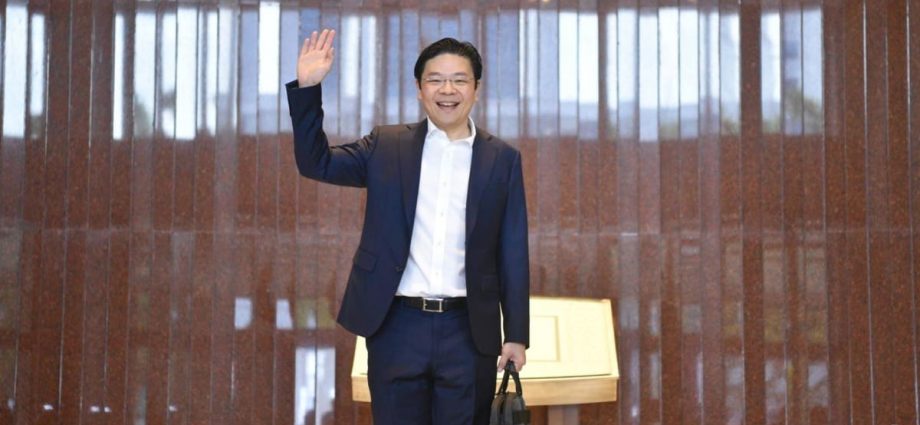
3. More support for parents
The Baby Bonus Cash Gift will be increased by S$3,000 for eligible Singaporean children born from Tuesday.
The payout schedule will also be adjusted to provide financial support regularly every six months until the child turns six-and-a-half years old.
The Child Development Account (CDA) First Step Grant will be increased from S$3,000 to S$5,000. The Government will also increase its co-matching cap by S$1,000 for the first and second child.
Previously available to children born from Oct 1, 2020 to Sep 30, 2022, the S$3,000 Baby Support Grant will be extended to babies born from Oct 1, 2022 to Feb 13 this year.
Government-paid paternity leave will be doubled from two to four weeks for fathers of Singaporean children born from Jan 1, 2024.
Unpaid infant care leave will also be doubled for each parent in the child’s first two years, from the current six days to 12 days per year.
For Singaporean children born or adopted from Jan 1, 2024, the Working Mother’s Child Relief will be changed from a percentage of the mother’s earned income to a fixed sum.
4. Central Provident Fund (CPF) monthly salary ceiling to be raised
The CPF monthly salary ceiling will be increased in stages from S$6,000 to S$8,000 by 2026, starting from September this year.
From September 2023, the CPF monthly salary ceiling will be raised by S$300 to S$6,300.
It will go up to S$6,800 from January 2024, S$7,400 from January 2025 and S$8,000 from January 2026.
There will be no change to the CPF annual salary ceiling.
5. Higher marginal Buyer’s Stamp Duty for higher-value properties.
For residential properties, the portion of the value of the property in excess of S$1.5 million and up to S$3 million will be taxed at 5 per cent, while that in excess of S$3 million will be taxed at 6 per cent, up from the current rate of 4 per cent. The changes are expected to affect 15 per cent of residential properties.
For non-residential properties, the portion of the value of the property in excess of S$1 million and up to S$1.5 million will be taxed at 4 per cent, while that in excess of S$1.5 million will be taxed at 5 per cent, up from the current rate of 3 per cent. These changes are expected to affect 60 per cent of non-residential properties.
The Buyer’s Stamp Duty regime changes will apply to all properties acquired from Wednesday.
6. Higher Additional Registration Fee (ARF) for cars
The ARF rates will be adjusted to better differentiate between the higher-end cars and tax luxury cars at a higher rate.
Buyers of cars with Open Market Value (OMV) of more than S$40,000 will pay higher marginal ARF rates. In particular, for the highest OMV tier, the revised ARF rates will be 320 per cent, an increase from the 220 per cent today.
The Preferential ARF rebates will be capped at S$60,000 to avoid providing excessive rebates to more expensive cars when they are deregistered.
The changes are expected to affect the top one-third of cars by OMV. Buyers of cars with an OMV of $40,000 or less will be unaffected.
7. Higher tobacco tax
With effect from Tuesday, there will be a 15 per cent increase in tobacco excise duty across all tobacco products. The increase is expected to generate about S$100 million in additional revenue per year.

